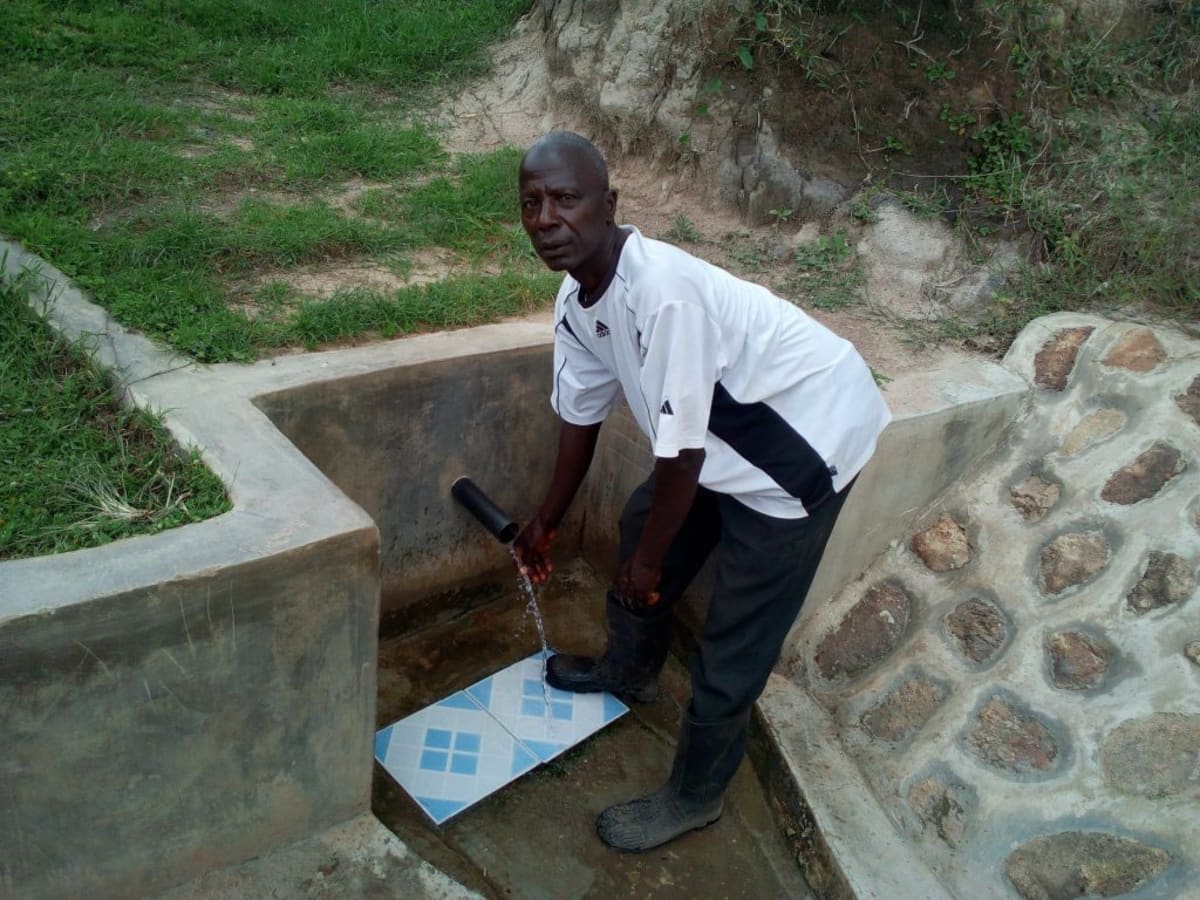This project is a part of our shared program with Western Water and Sanitation Forum (WEWASAFO). Our team is pleased to directly share the below report (edited for clarity, as needed).
Welcome to the Community
A day in Futsi Fuvili Community usually starts at the rooster's call at 6am when the men wake up to milk the cows. Meanwhile, the women clean the house and prepare breakfast for the whole family. After milking the cows the man takes the milk to the nearby shopping center to sell. The women send their children off to school, after which they head to fetch water for household use. And by then, it's time to start preparing lunch for the entire family, since children are given a break at lunch to return home. Once lunch is ready, the women are then free to work on their farms. The day usually ends after dinner at 8pm since that's when the sun sets.
Water Situation
Shikanga Spring serves about 50 households, providing enough water for drinking, cooking, cleaning, and watering animals. But its water is dirty, contaminated by waste delivered by rainwater and animals that come and go. And since there's 350 people fetching their water from here, it's severely contaminated by all of the busyness in the area throughout the day. Not to mention the water containers brought to the spring aren't even clean!
The community took initiative, fixing a pipe at the place from which they saw water flowing. Now, they place their containers under the discharge pipe until full.
Water meant for drinking is transferred into another container at home, normally located in the living room. These are covered and made of clay, which is thought to keep the water at a cooler temperature. After drinking water from Shikanga Spring, people suffer from waterborne diseases that bring diarrhea, stomachaches and headaches. So much money that could go towards development is instead spent on treating these illnesses.
Sanitation Situation
The condition of latrines observed in this community were all over the spectrum; some were in great condition, while others were almost collapsing in on themselves. The most common latrine is made of mud and iron sheets. However, less than half of the households in Futsi Fuvili even have their own pit latrine. Because of these poor conditions, open defecation is an issue here. People prefer to use the privacy of bushes to relieve themselves, leaving their waste to be spread around the community by flies, wild animals, and rainwater.
Nobody has a hand-washing station, while few have helpful tools like dish racks and clotheslines. Farmer Askari Shikanga is the landowner who invites his community to sate their thirst at this spring. He said, "The people of this community lack sanitation knowledge because no one has taken an initiative to seek for it; people are therefore still suffering and their inactivity to improve the situation has exposed the whole village to diseases. We are therefore at risk."
Plans: Hygiene and Sanitation Training
Community members will attend hygiene and sanitation training for at least two days. This training will ensure participants are no longer ignorant about healthy practices and their importance. The facilitator plans to use PHAST (Participatory Hygiene and Sanitation Transformation), CLTS (Community-Led Total Sanitation), ABCD (Asset-Based Community Development), group discussions, handouts, and demonstrations at the spring.
Training will also result in the formation of a committee that will oversee operations and maintenance at the spring. They will enforce proper behavior around the spring and delegate tasks that will help preserve the site, such as building a fence and digging proper drainage.
Plans: Sanitation Platforms
On the final day of training, participants will select five families that should benefit from new latrines.
Training will also inform the community and selected families on what they need to contribute to make this project a success. They must mobilize locally available materials, such as bricks, clean sand, hardcore, and ballast. The five families must prepare by sinking a pit for the sanitation platforms to be placed over. All community members must work together to make sure that accommodations and food are always provided for the work teams.
Plans: Spring Protection
Protecting the spring will ensure that the water is safe and adequate for drinking. Construction will keep surface runoff and other contaminants out of the water. Fetching water is predominantly a female role, done by both women and young girls. Protecting the spring and offering training and support will therefore help empower the female members of the community by giving them more time and efforts to engage and invest in income-generating activities.

 Protected Spring
Protected Spring
 Rehabilitation Project
Rehabilitation Project





































